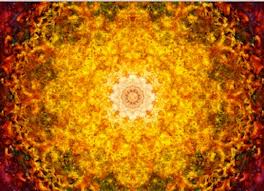Credit To The People
www.credittothepeople.org
info@credittothepeople.org
(413) 329-3200
~ Helping people understand and take responsibility
for using credit and money for the benefit of all ~
New Banking Models
The good thing about our modern monetary system is that it makes it abundantly clear that money has become a robust accounting system administered by banks.
Any new banking model that would promote the common good must be based on the understanding that creating money and regulating the money supply is the primary tool of the sovereign. This means that banking is a public service and money is a public utility and must be democratically controlled in a way that benefits everyone, according to the values expressed by we the people.
A new banking model based on providing the people with the capital their capacities warrant to pursue projects and enterprises determined by the people to promote the common good would change everything for the better.
The Public Banking Institute has made a beginning in this direction, a report of which is available on their website, including information from their second annual conference.
The American Monetary Institute is promoting the American Monetary Act and their proposal would convert the Federal Reserve into a publicly owned department of the treasury which issues the money directly to pay for government services, including an overhaul of the infrastructure and public financing of the health care system.
Common Good Finance plans to buy or charter a bank as soon as its rCredits system (Community-created Credit) is sufficiently well established to provide the required capital.
- JGR Jr.
One concept is the "non-bank Bank", which follows the concept of an "Interdependence Fund", and allows communities to "recycle" money among its members. Members meet on a regular basis, and members in good standing can borrow money to buy equipment and other capital without collateral. Generally, on a small/micro-finance-basis, "loans" start out at $200. When the member brings back the $200, the member can get $300, and so on. The idea is to provide a "trust" that nourishes community. The loans are made on a no-obligation basis, with the understanding that a member will repay the loan "for good", once the member is in a position to do so. Donors give money with the understanding that they will not get it back, except to know that they are contributing to a new world...a world where we trust people, and nourish communities without needing a monetary return. Members decide the criteria for loans on a consensus-basis. All administration is done on a voluntary basis. - TF
The goal of our Patriotic Petition to Reform the Fed is to transform the Federal Reserve System from a private institution into a public bank. - CG
Non-Bank-Bank, for Startup Funding
Small business ideas are often constrained by the lack of capital. If someone has an idea, they need to find money for materials, for example. A typical visit to a bank will result in questions about how much "capital" the person has to guarantee a loan. But if the person had any capital, they probably wouldn't have to ask for money! So that route stifles innovation. Another place that people-with-ideas turn to is angel investors. But most angel investors only want to make money! And they want to own/control the operation. That stifles innovation too! Traditional banks are focused on making money. Non-profit organizations don't worry about making money, but they also have overhead and other restrictions. And grant organizations take a long time to figure out, apply to, etc. The bottom line is that innovators need money "now". They need it without strings and overhead, forms and bureaucracy.
Terra Friedrichs is interested in setting up a micro-granting organization that operates somewhat like a micro lending operation, but without any commitment to repay. The idea is that if we could have donors who have extra money, put that money into a fund and a group of volunteers gives out small bits to innovators and/or people who want to create community service organizations. The bits are given out with a handshake and the hope for certain restrictions. The money could be spent only on materials, with a focus on local suppliers. If you take the money and spend it on a potential business idea and it works, come back for more! Show us what you did, and get more to expand your operation! This idea is to allow people to start things up without the strings that choke economic development. The volunteers who decide who gets the funds can be community/locally based, so that the Non-Bank Bank can watch the progress of the funds in action. If you want to be part of this, Terra's looking for someone who likes to do administration, someone who likes to help recruit and find people to participate, and of course, people with money to spare. - TF
Articles of interest:
